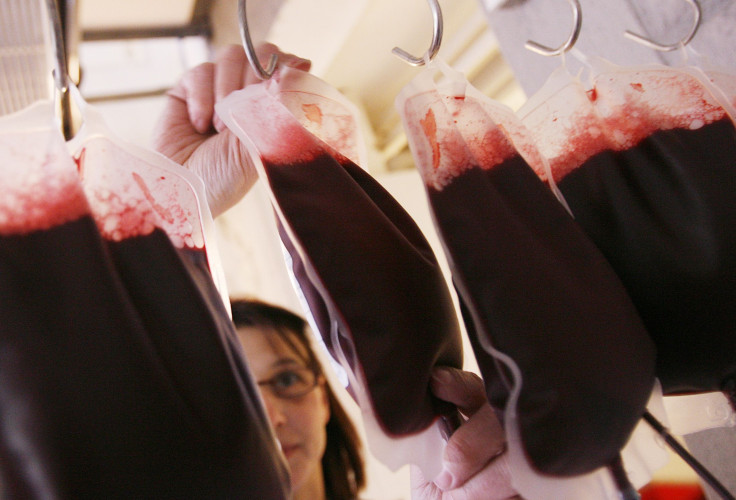Blood Donations Made Simple: New Process Renders Type A And B Blood 'Neutral'

While many generous volunteers donate their blood every day, transfusion is a tricky business that requires the blood type of a donor to match that of a recipient. There’s just one exception: type O blood, known as the universal donor, can be given to anyone in need. Now, scientists report a new way to transform types A and B blood so that these types also can be given to any patient requiring it.
Blood is life.
Every two seconds someone in the United States needs blood, and this adds up to more than 41,000 necessary donations each day. Blood is a unique fluid that pilots life-sustaining nutrients and oxygen throughout our bodies. Lose too much of this precious liquid, which cannot be manufactured, and you will undoubtedly meet your maker.
Unfortunately, if given the wrong blood type, a patient can suffer serious side effects, possibly even death. So what is type?
Though all blood is made of the same elements, the different types include the presence (or absence) of specific antigens — in this case, sugars found on the exterior of red blood cells. Type A blood contains A antigens on its red cells, while type B contains B antigens. Essentially, it’s the A or B antigens that can provoke a reaction; the immune system of patients with unmatched blood will read the A or B antigens in donated blood as dangerous and so begin a defensive attack. This also is the reason why anyone can receive type O — it contains neither antigen and so will not trigger an immune system response.
Naturally, for years scientists have been exploring ways to convert blood types A and B into type O. They discovered one route of great potential: enzymes from bacteria can clip the antigens off blood cells. Unfortunately, the enzymes are not very efficient in this process of making a blood type more anonymous.
For the current study, then, Dr. Stephen G. Withers of the University of British Columbia and his colleagues wanted to see if they could increase the activity of these enzymes. After tweaking one of the enzymes, the science team improved its ability to remove antigens by 170-fold. In this way, they rendered A and B blood antigen neutral, and so more likely to be accepted by all patients no matter their blood type.
Beyond blood transfusions, the researchers believe their advance might allow tissue and even organ transplants between donors and receivers who might otherwise be mismatched. Quite possibly everyone, no matter their blood type, will one day be considered a universal donor.
Source: Kwan DH, Constantinescu I, Chapanian R, et al. Toward Efficient Enzymes for the Generation of Universal Blood through Structure-Guided Directed Evolution. J. Am. Chem. Soc. 2015.



























